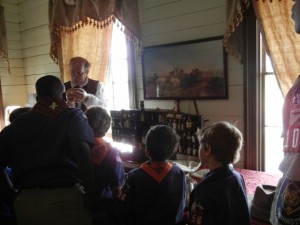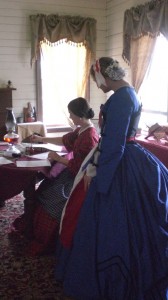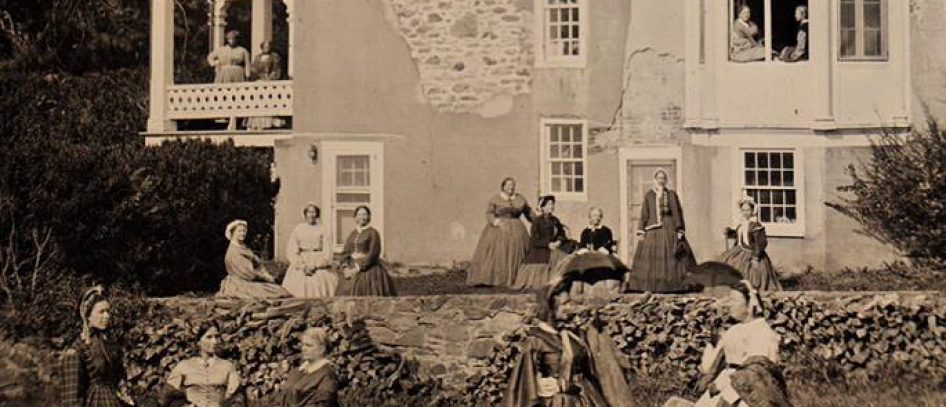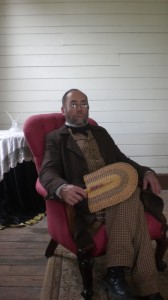To “do” living history you must create a “history” to interpret. This history will be determined a great deal by the event you are participating in and the environment you have available to you, but even more so by your impression. Your clothes, props, and even your activities at events are dictated by your impression. Some events may require an impression specific to a time and place.
Developing an impression does not mean exclusively participating in first person activities. An impression can facilitate public interaction and gives you a focal point from which to answer questions from the public, whether it is in first or third person.
Whether you decide to do first or third person, you will need to research your impression. You will need a basic understanding of the world of the mid-1800s—what your impression would and would not know, what they would experience and understand, their beliefs and attitudes. Other pages on this site will help you with your research. You do not need to know everything. Don’t hesitate to claim ignorance on any appropriate subject; however, when you do impart information, make sure it’s accurate.
Impression Development Questions
Below are basic questions to help you develop an impression. Later, if you wish to develop a more in depth impression, you might want to consider reading Past into Present by Stacy F. Roth. Her book includes other questions that will help you add more dimensions to your impression
What is your name?
Where were you born?
Do you read and write?
What is your state of health? What diseases have you suffered?
Do you have an occupation?
Are you married?
What are the typical daily, weekly, seasonal, and annual skills that you need to know?
Do you have any unique skills or talents?
Are there customary talents that are common to your station, status and class?
Do you possess common knowledge and/or survival tactics specific to your era, station, status, and class?
How do you get from one place to the other?
What clothing is typical of your station?
Do you own property?
Do you have an opinion regarding the war? What is it?
What effect has the war had on you personally?
Examples of Roles for Women
Refugee Laundress Cook Pacifist Abolitionist Copperhead Seamstress Milliner Mantua maker Local farmwife Wife/daughter of tradesman Town gossip, busybody, local character Society matron, social belle Entertainer, singer, actress Public speaker-social issues, reform, etc Visitor or traveler Vagrant Servant
Examples of Roles for Men
Mayor, congressman, government bureaucrat Judge, justice of the peace Preacher or chaplain Pacifist Copperhead Abolitionist Scallywag or carpetbagger Grouchy old man Town drunk or naysayer Entertainer, singer, actor Local farmer Doctor or dentist Carpenter Tradesman: baker, tinker, blacksmith, barber, rum seller, brewer, telegraph office, postmaster, printer, newspaper reporter, saddler, miller, tailor, machinist, mechanic, cooper, attorney Militia member Potential military recruit Vagrant Visitor or traveler Traveling salesman Servant Hired hand Teacher
First Person articles.

